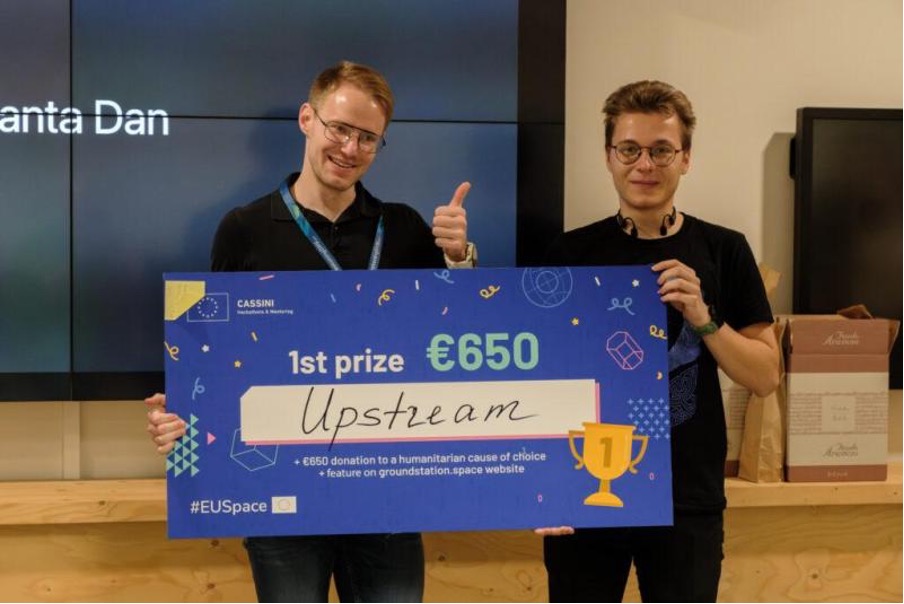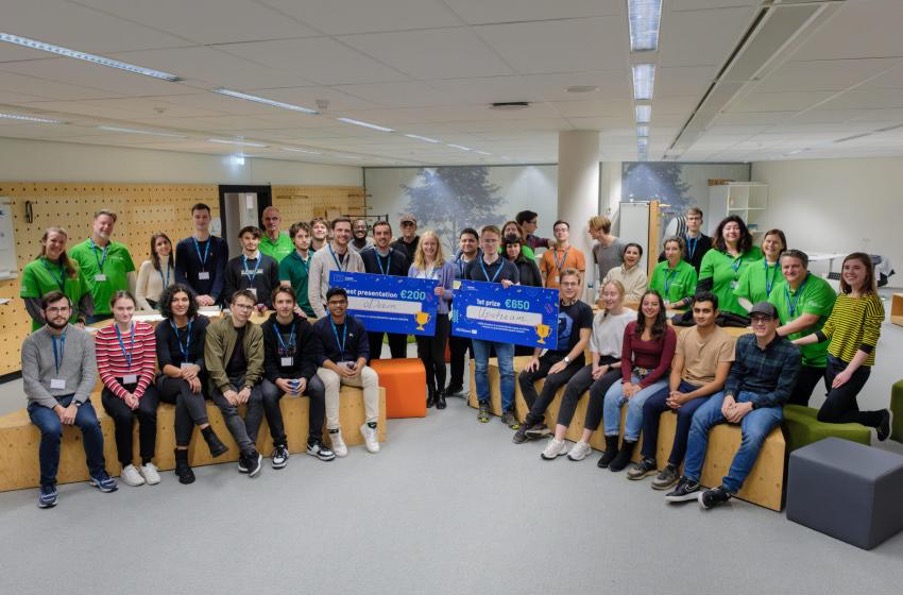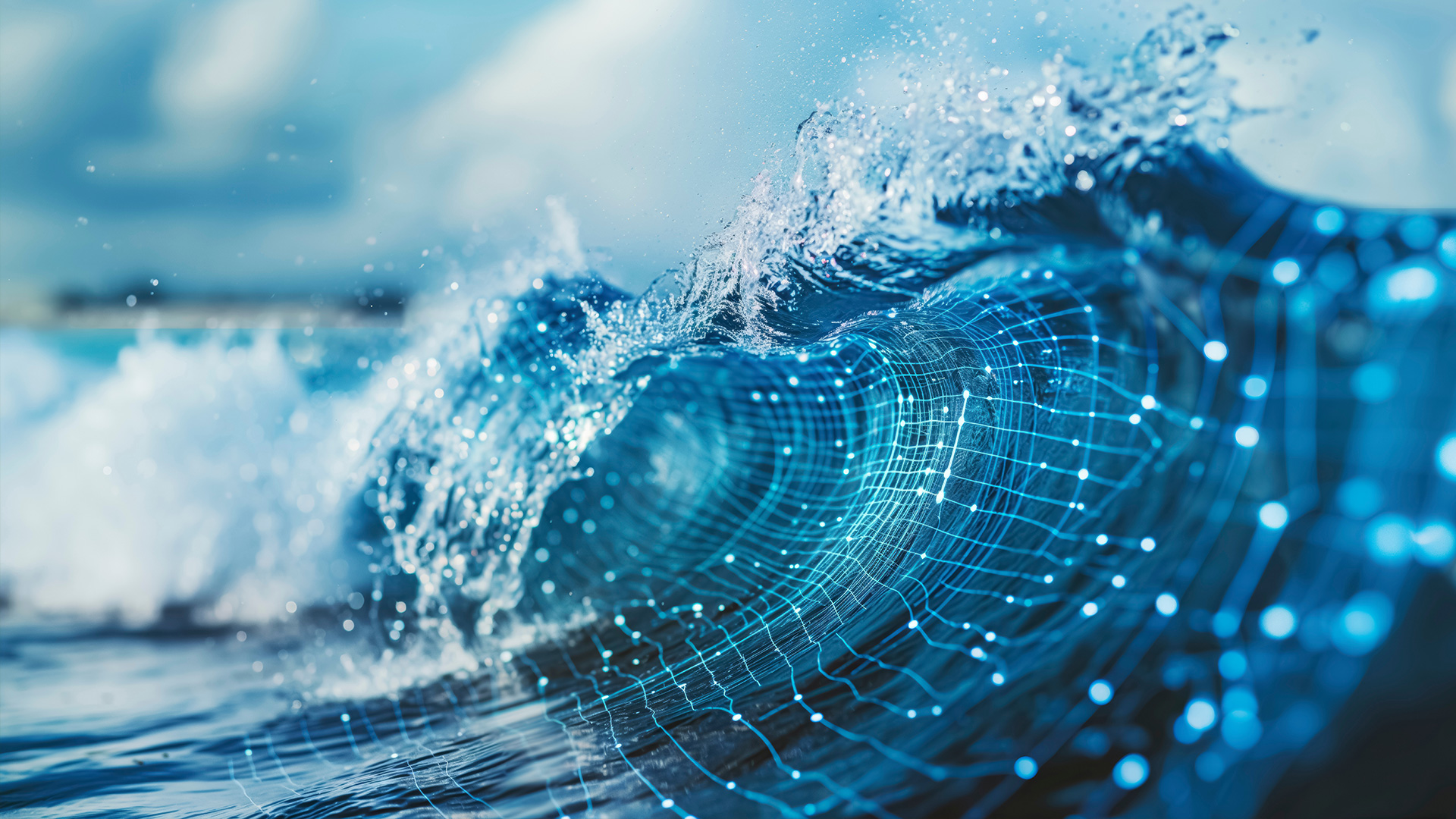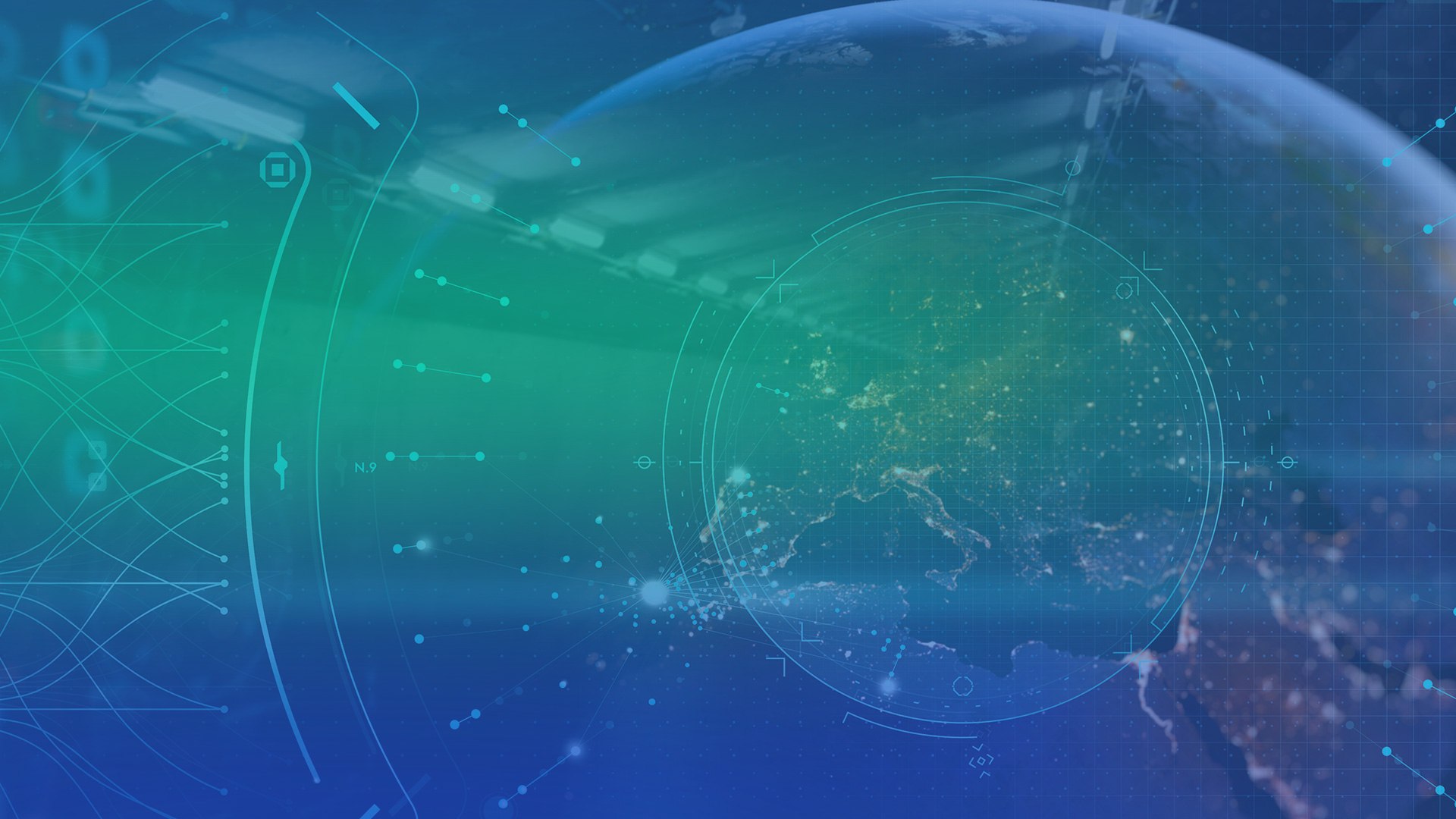Iliad partner SINTEF wins CASSINI development hackathon with sustainable aquaculture modelling
November 29th, 2023
SINTEF, the Norwegian independent non-profit research organisation and partner in the EU-funded Iliad project designing digital twins of the ocean, won overall first place in the 6th CASSINI international hackathon focusing on sustainable development under the heading “Space for International Development & Humanitarian Aid”, in the final round that took place November 9.

Bård Hanssen (on the left) and Alexandr Makarov (on the right)
For the Hackathon, SINTEF, participating under the team name Upstream, submitted a project on tackling aquaculture parasites with Copernicus satellite data, with the aim of providing a solution contributing towards sustainable aquaculture and food security. Toward that end, the team focused on biosecurity planning for aquaculture sites together with marine spatial planning and sustainable aquaculture practices.
Upstream-SINTEF’s initial video presenting their aims for the Hackathon, as well as information on the winners of the initial local round held in ten different countries across Europe, can be seen in this blog entry, which also mentions SINTEF’s partnership in the Iliad project and that SINTEF had won the Iliad hackathon in September.
In Upstream’s pitch video, SINTEF’s Bård Johan Hansen explained that aquaculture is crucial to the world’s future food supply, and ensuring aquaculture’s efficiency and sustainability is becoming increasingly important. Global seafood consumption has doubled over the past 30 years, and capture fisheries have reached their maximum production capacity, meaning that aquaculture has picked up the slack and its volume of production is expected to increase by 22% between 2020 and 2030.
“To sustainably continue seafood consumption, while avoiding overfishing and stock collapse, we need to rely on aquaculture, which is an increasingly growing market. However, diseases and parasites are a big problem,” Hansen said, noting that fully 25-30% of sea bream production is lost due to parasites and some 10-15% of salmon production. Estimates of the cost of aquaculture losses to parasites globally in 2015 alone was in the billions of euros. Global warming is believed to be further exacerbating the problem, as parasites thrive in warmer waters, Hansen noted.
While biosecurity planning is mandated by the EU and local government bodies and Marine Spatial Planning (MSP) is the primary approach for planning economic activities in marine areas, challenges remain, Hansen said.
Upstream-SINTEF’s solution is to simulate the spread of harmful particles between aquaculture sites and the harm to the environment, he said, adding that the team is able to analyse transmission of parasites and disease, identify hotspots and propose optimal site placements (using MSP), using a generic parasite model. Such a model is important since different parasites behave differently with varied lifecycles and other properties requiring various models to accurately simulate each one. The Upstream-SINTEF team therefore created a demo, in which they can run simulated outbreaks and “what if” scenarios based on specific fish farm locations.
Upstream-SINTEF powers their modelling using EU space technologies, based on multiple datasets from Copernicus marine observations, including ocean currents, temperature data and salinity, as these factors affect how parasites behave, Hansen said.
As a business model, Upstream-SINTEF proposes tools for automated biosecurity planning, including management of fish health and welfare, MSP site placements, mandated reporting on fish health and welfare and a focus on food safety, following UN goals of zero hunger and protection of marine life.
The market targeted for the biosecurity-focused aquaculture modeling that Upstream-SINTEF is proposing consists of stakeholders working with biosecurity in general, aquaculture operators, planners for aquaculture activities and production in both regulatory authorities and commercial companies, and other government agencies. Upstream-SINTEF is also open to offering services through the EU-funded NextOcean project, which would provide access to an established user base and help reduce overhead, marketing and sales costs, Hansen noted.
The other members of the Upstream-SINTEF team were Jarl Gunnar Flaten, Erling Devold, Aleksandr Makarov, Signe Sønvisen and Øystein Knutsen.
All winners of the local competitions and their projects can be viewed here.


